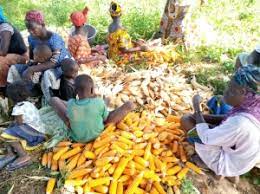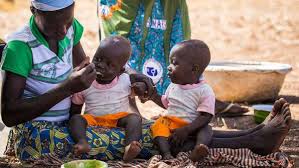According to a top U.N. official, West Africa will be the next recipient of important Russian fertilizer that has been stopped from leaving European ports for impoverished nations, partly due to worries from the private sector regarding the funding and insurance of such shipments.
The fact that Russia, Turkey, Ukraine, and the international organization had extended a four-month agreement the day before to make it easier for Ukrainians to export grain and other goods through the Black Sea was hailed as “very good news for the world” by Rebeca Grynspan, head of the U.N. trade office. The conflict in Ukraine has contributed to an increase in the cost of food and fertilizer globally.
The extension quickly affected market pricing and gave the U.N. some breathing room while negotiations proceeded.
Grynspan said at a U.N. meeting in Geneva, “But we have expressed very clearly that we are still not where we want to be. “There is still work to be done, particularly in the fertilizer sector where we are currently seeing a bottleneck in fertilizer supplies.”
Because of the affordability crisis, she continued, “we see a very steep decline in the demand for fertilizers, and that is what is keeping us up at night.”
The agreement reached on July 22 which was due to expire on Saturday allowed for the unblocked export of 11 million tons of grain and other food products from Ukraine, which also helped to lower rising food prices worldwide.
Four more months will be added to the agreement. The program established inspection protocols and a secure shipping route in the Black Sea to allay worries that cargo ships would be armed or used as launch pads for assaults.
A second, parallel agreement on the shipment of Russian food and fertilizer is still up against obstacles. Moscow has expressed disappointment that there hasn’t been any development, and it anticipates some.
Fertilizer was one of Russia’s biggest exports before the conflict, and a shortage could lead to a future food crisis.
Although food exports were not specifically targeted by Western sanctions against Russia for its invasion of Ukraine, many shipping and insurance companies were reluctant to do business with Moscow, either refusing to or significantly raising the cost.
In order to help farmers in the poor world who are being priced out of the fertilizer market due to shortages, Russia has offered to donate 260,000 metric tons of fertilizer that is now being kept in European ports. The first ship is scheduled to leave the Netherlands on Monday for Mozambique, from whence the fertilizer would be transported by land to Malawi, according to the U.N. official.
“We expect that West Africa, which has been severely impacted by the fertilizer affordability situation, would be the next destination for the fertilizers,” “Grynspan stated. ”West Africa is the next stop.”




















